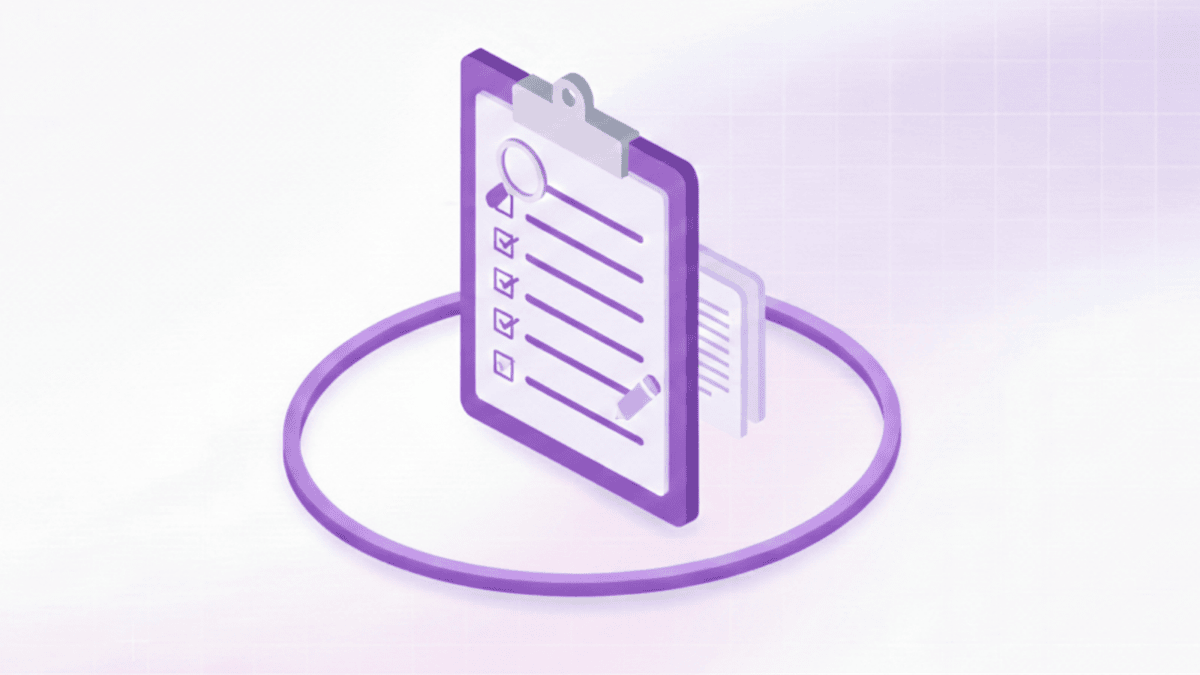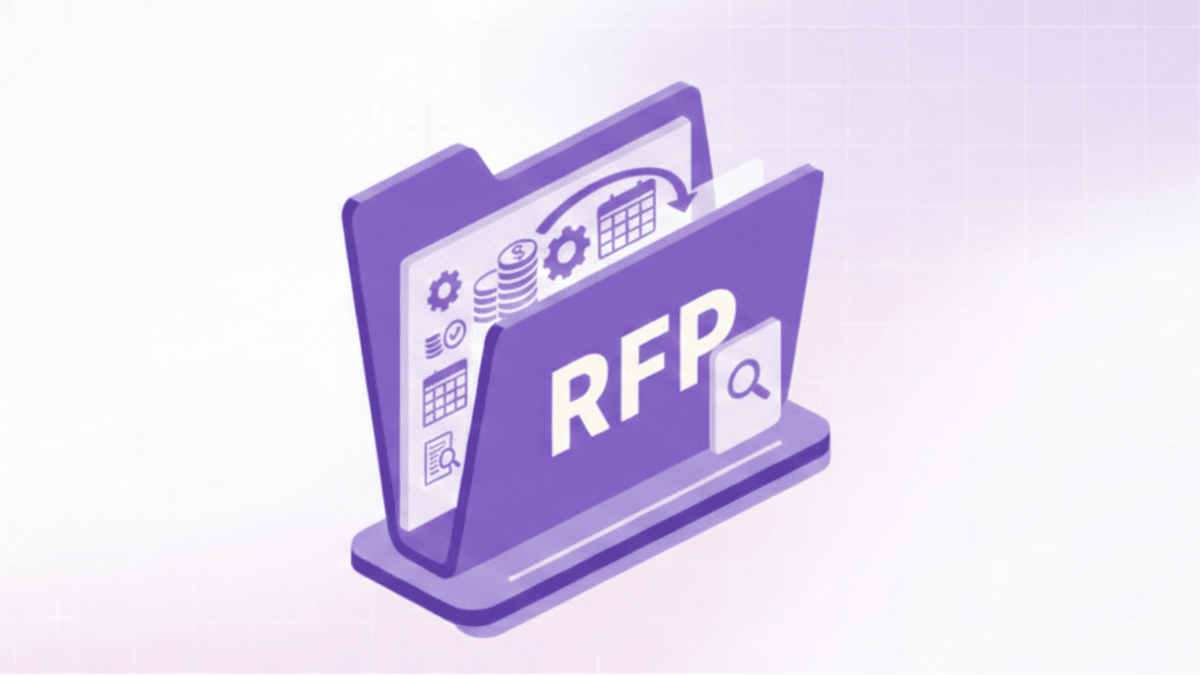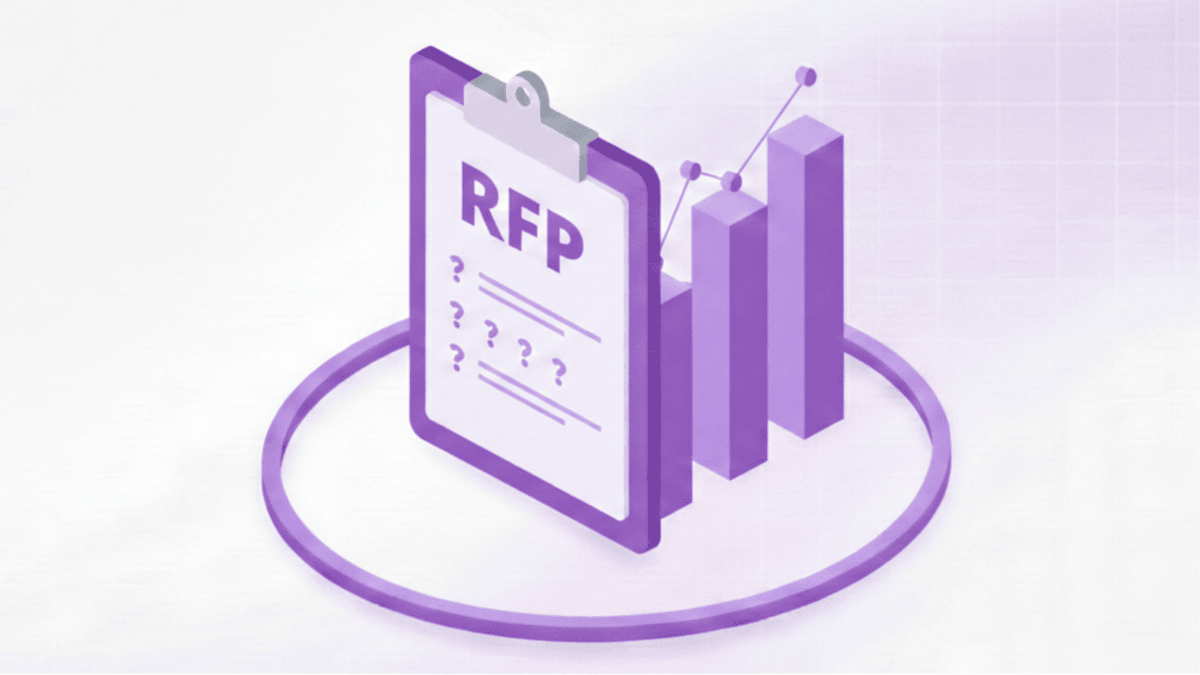Did you know that mastering proposal writing skills could be the difference between winning and losing critical bids in 2025? Understanding the intricacies of RFP proposal writing and crafting compelling RFP responses is essential for any professional proposal writer or RFP response writer.
Tight deadlines are the norm for RFPs. Miss one, and your submission won’t even be considered, no matter how brilliant it is. As competition for limited resources intensifies, the demand for skilled individuals proficient in proposal writing is surging.
Whether you’re preparing project proposals, government bids, or internal funding requests, the ability to create a strong response is fundamental to success. According to industry experts, six critical proposal writing skills now separate winning bids from those that are easily overlooked.
Successful proposal writers are masters of project management and prioritization, often juggling multiple proposals with overlapping deadlines. Tenacity, attention to detail, and thoroughness are non-negotiable, as RFPs frequently involve dozens of complex requirements.
This article will walk you through the essential steps of proposal writing to help you win more bids in the AI era. You’ll learn what proposal writers do, how to become one, and how to use artificial intelligence to amplify, not replace, your expertise. We’ll also cover proposal writing best practices, the proposal writer job description, how to become a technical writer, salary insights, and career prospects in this growing field.
What do proposal writers do in 2025?
Proposal writers in 2025 serve as the strategic architects behind successful bids, combining their writing expertise with technological capabilities to deliver winning submissions. These professionals have evolved from simple content creators to vital business development assets who directly influence revenue growth and organizational success. Understanding the proposal writing definition is crucial to grasping the full scope of this role.
Key responsibilities in modern proposal writing
A modern proposal writer when writing an RFP manages far more than just writing. They’re involved from the early stages of value proposition development to final submission, ensuring every part of the RFP response aligns with client needs and compliance standards.
Day-to-day responsibilities of a proposal writer include:
- Turning technical information into persuasive, easy-to-read content
- Collaborating with subject matter experts to explain complex solutions
- Leading storyboarding sessions to shape win themes
- Ensuring strict compliance with RFP instructions and evaluation criteria
- Managing content libraries for knowledge management
RFP writer thrive under pressure, often juggling multiple proposals with overlapping deadlines. Attention to detail, time management, and prioritization are non-negotiable. In government contracting, knowing Federal Acquisition Regulations (FAR) is a must. Missteps here can lead to legal risks.
A proposal writer, whether responding to formal RFPs or pitching unsolicited ideas, tailor content to the client’s goals. They may also handle renewal proposals to retain existing business.
How AI is changing the role
Artificial intelligence has fundamentally transformed proposal development, creating both opportunities and challenges for writers. AI-powered proposal software can now generate first drafts significantly faster by analyzing historical proposals and extracting relevant content. Furthermore, these tools can "shred" an RFP in minutes, creating comprehensive compliance matrices that ensure every requirement is addressed.
AI provides unprecedented personalization capabilities, analyzing past data and client interactions to understand individual preferences and priorities. This allows proposal writers to create tailored submissions that address specific client needs, significantly improving success rates.
The human element remains indispensable. AI struggles with understanding nuanced client needs beyond the written RFP, something only human perception can discern. Additionally, AI raises concerns about data security, particularly when dealing with sensitive government contracts.
Consequently, successful proposal writers in 2025 aren't being replaced by AI, they're being empowered by it. They leverage technology to handle tedious tasks while focusing their expertise on proposal strategy, creative problem-solving, and relationship building that machines simply cannot replicate.
How to become a proposal writer
Breaking into the proposal writing field requires a strategic combination of education, certifications, and practical experience. The path to becoming a successful proposal writer involves developing specific skills, obtaining relevant qualifications, and showcasing your abilities through a well-crafted portfolio. For those wondering how to become a technical writer, many of these steps are similar, as the skills often overlap.
Educational background and certifications
Formal education serves as the foundation for most proposal writing careers. Beyond traditional degrees, specialized training and proposal writer certification demonstrate your commitment to proposal writing as a profession. The Association of Proposal Management Professionals (APMP) offers the industry's most recognized certification program, which follows a three-tier structure:
- Foundation level: For professionals with 1-3 years of experience, demonstrating knowledge of best practices
- Practitioner level: For those with 3-7 years of experience, showing mastery in applying best practices
- Professional level: For veterans with 7+ years of experience who have made significant contributions to organizations
Other institutions offer alternative certifications, such as the Certified Proposal and Bidding Professional (CPBP) program, which equips individuals with specialized knowledge in proposal development and bidding processes.
Building a portfolio of writing samples
A strong portfolio is essential, even if you’re just starting out. It should highlight your best proposal writing, market analysis, and contract development work to demonstrate your skills clearly.
If you don’t have professional experience yet, try these practical ways to build your portfolio:
- Create mock proposals for fictional projects, just be sure to label them as sample work.
- Publish articles on platforms like Medium to showcase your writing ability.
- Write guest posts for industry blogs to build credibility.
- Volunteer your writing for nonprofits or government programs to gain real-world examples.
- Submit personal essays to publications, these can highlight your voice and perspective.
When organizing your portfolio, group your samples by topic, medium, or date. Whatever best highlights your strengths. Always lead and close with your strongest pieces to make a lasting impression.
Focus on writing samples that show your proposal writing skills, not just where you’ve been published. Hiring managers care more about how well you write than how famous the platform is.
Essential proposal writing skills to develop
Mastering proposal writing requires a blend of research, storytelling, collaboration, and sales strategy. To consistently deliver winning bids, successful proposal writers sharpen these core skills to stand out in today’s competitive landscape.
Research and analysis
Great proposal writing starts with solid research skills. You need to understand what the client really needs, even if they can’t articulate it clearly. The deeper your research, the more tailored and persuasive your proposal will be.
Effective research means:
- Digging into the RFP to identify key priorities
- Running discovery sessions to uncover pain points and budget constraints
- Analyzing the client’s industry, competitors, and challenges
For technical proposals, understanding the science and methodology behind your solution is critical.
Persuasive writing and storytelling
Winning proposals don’t just inform, they persuade. Proposal writing is most effective when it tells a clear, compelling story that makes your solution resonate both logically and emotionally.
Great storytelling:
- Simplifies complex ideas
- Shows you truly understand the client’s pain points
- Builds trust through relatable success stories and testimonials
- Creates a memorable narrative evaluators can connect with
Using consistent “win themes” and crafting strong executive summaries are key techniques here. These highlight your unique value and increase the chances of your proposal being seriously considered.
Time management and collaboration
With strict deadlines, time management is critical for you as a proposal writer. Miss the deadline, and your proposal won’t even be read. That’s why proposal writer must work on deadline management, build in buffer time, and stay organized.
Collaboration is just as vital. Proposal team often involve cross-functional input from sales, product, legal, and other teams. Strong collaboration requires:
- Clear role assignments
- Regular check-ins and updates
- Project management tools to track progress
- Systems for feedback and final proposal review
Diverse teams bring better ideas and more competitive proposals.
Sales strategies in proposal writing
At its core, proposal writing is a sales activity. The best proposal writer apply sales techniques to influence decision-makers and close deals.
Key tactics include:
- Identifying and solving the client’s pain points
- Highlighting your unique value proposition
- Adding social proof (like case studies) to build trust
- Creating urgency without overselling
- Anticipating and answering objections before they’re raise
By weaving sales strategy into your writing, you become a business proposal writer, who creates proposals that not only inform but persuade and convert.
Using AI to improve your proposal writing
Artificial intelligence is reshaping proposal writing, offering tools that speed up workflows, improve accuracy, and boost win rates. For any proposal writer, AI can streamline repetitive tasks while helping maintain high professional standards in rfp proposal writing and beyond.
AI tools for drafting and editing
Modern proposal software supports writers across 4 essential functions:
- Research automation: AI scans databases, RFP repositories, and online resources to gather relevant data quickly.
- Content generation: Natural language processing tools help draft responses in a tone that fits your audience, ideal for writing an RFP or tailoring unsolicited proposals.
- Formatting assistance: AI ensures proposals meet submission guidelines, standardizing headers, margins, and fonts for a polished look.
- Tracking and notifications: Tools like Motion provide visual dashboards and reminders, improving deadline management across your proposal team.
Whether you’re a professional proposal writer, rfp response writer, or even a freelance proposal writer, these tools can drastically improve output quality and consistency.
Avoiding common AI pitfalls
While AI offers efficiency, it’s not foolproof. Sensitive data must be handled with care—avoid uploading confidential information to generative tools. Also, AI can introduce factual errors or misinterpret complex technical needs, which is critical in government bids or technical proposals.
That’s why human oversight is essential. Even with AI help, your critical thinking, attention to detail, and domain knowledge ensure accuracy and context.
Balancing automation with human insight
AI enhances, but doesn’t replace, human ingenuity in proposal management. Let automation handle formatting and version control while you focus on persuasive writing, win themes, and building narratives that connect emotionally and logically.
Top proposal writing skills like storytelling, collaboration, and strategic planning remain irreplaceable. With the right balance, AI can increase your output while you sharpen your proposal strategy and strengthen client relationships.
Career growth and opportunities
The proposal writer career path offers flexibility, strong earning potential, and opportunities across industries. Whether you’re just learning how to become a proposal writer or are looking to advance into leadership, this field supports long-term professional growth.
Freelance vs. in-house roles
Proposal writing jobs span both traditional employment and freelance contracts. In-house writers benefit from steady pay, access to mentors, and opportunities for career advancement. This structure is ideal for those seeking a clear proposal manager career path and day-to-day collaboration with cross-functional teams.
By contrast, a freelance proposal writer typically commands higher rates per project but must manage their own taxes, downtime, and benefits. Freelancers enjoy flexibility and variety in their work but face inconsistent income and greater administrative responsibility.
Hiring full-time writers is costly, averaging USD 79,221 to USD 118,328, annually, depending on experience and location. If the hire doesn’t work out, the cost of replacement ranges from 20% to over 200% of the employee’s salary.
Freelance writers, on the other hand, often charge per word, hour, or project. Rates vary widely, from USD 40 for small assignments to close to USD 51,908 for strategic RFPs.

Industries hiring proposal writers
Proposal writing spans nearly every sector, IT, engineering, healthcare, education, nonprofits, government, and more. Specialists like business proposal writers, rfp response writers, and grant writing professionals are in high demand for both solicited proposals and unsolicited proposals.
Top-paying companies for proposal writers in 2025 include Accenture, Amazon, and SAIC. These figures offer perspective for those asking how much do proposal writers make or researching proposal writer salary expectations.
Future trends in proposal writing
With continued demand for clear communication in complex industries, the outlook for proposal writing jobs is strong. The U.S. Bureau of Labor Statistics projects a 6% growth rate for technical writing, which includes proposal writing, through 2031.
Remote work has transformed the field. Writers now collaborate with global proposal teams, requiring stronger communication skills, digital fluency, and time-zone agility. Tools like Microsoft Teams, proposal software, and AI content generators play an increasing role in modern proposal management.
That said, human skills like persuasive writing, creativity, and attention to detail remain essential. As AI takes on more routine work, professionals who combine computer proficiency with emotional intelligence and strategic planning will stand out.
A typical proposal writer job description evolves over time, from entry-level roles to senior positions focused on proposal strategy, client relationships, and team leadership. Whether working as a rfp writer for a federal agency or a professional proposal writer in a corporate setting, there’s ample room to grow.
Why proposal writing still needs you in the age of AI
Proposal writing remains one of the most valuable skills in business today. While AI tools can speed up research, formatting, and content generation, they cannot replace your strategic thinking, persuasive writing, or storytelling ability.
That’s where SiftHub comes in. SiftHub supports proposal writers by automating time-consuming tasks like creating RFP drafts, organizing past responses, and suggesting relevant content. It helps freelance proposal writers, in-house teams, and proposal managers respond faster and more accurately without losing the human touch that wins deals.
Your role as a proposal writer is more important than ever. As demand grows across industries, from business development to grant writing, the best writers will be those who combine proposal writing skills with smart use of AI.
Whether you’re exploring how to become a proposal writer or already managing a proposal team, tools like SiftHub give you an edge. You save time, reduce errors, and focus on the parts of proposal writing that truly matter. Check out SiftHub today.
FAQs
Q1. What is proposal writing and how has AI changed it in 2025?
Proposal writing is the process of creating persuasive documents to win contracts, funding, or business deals. In 2025, AI tools have streamlined rfp proposal writing by automating research, content drafting, and formatting. Still, human insight remains essential for addressing client needs, applying persuasive writing techniques, and crafting win themes that AI alone can’t deliver.
Q2. What are the essential skills for a successful proposal writer?
Key proposal writing skills include research skills, persuasive writing, storytelling, time management, attention to detail, and collaboration. Proposal writers should also have strong computer proficiency, especially with Microsoft Office, and be comfortable using AI tools. Skills like critical thinking, communication skills, and strategic planning are crucial to producing winning proposals.
Q3. How can I build a portfolio as a beginner proposal writer?
If you’re learning how to become a proposal writer, start by creating sample responses to mock RFPs, business proposals, or grant writing scenarios. Publish articles on platforms like Medium or volunteer your services to nonprofits or startups. Include both solicited and unsolicited proposals to show range and relevance.
Q5. What is the job outlook for proposal writers and how much do they make?
Proposal writing offers a strong career path. The proposal writer salary ranges from $80,000 to over $100,000 annually in top firms, while freelance proposal writers may earn $40–$50 per hour or more per project. The proposal manager career path continues to grow, with 6% projected job growth through 2031. Demand is high across industries like IT, healthcare, and consulting, especially for professionals who can blend proposal writing best practices with AI tools.










